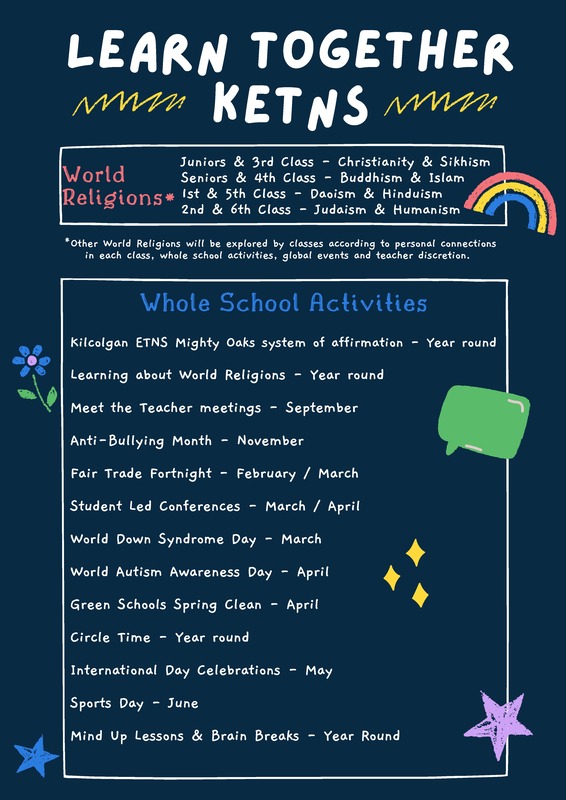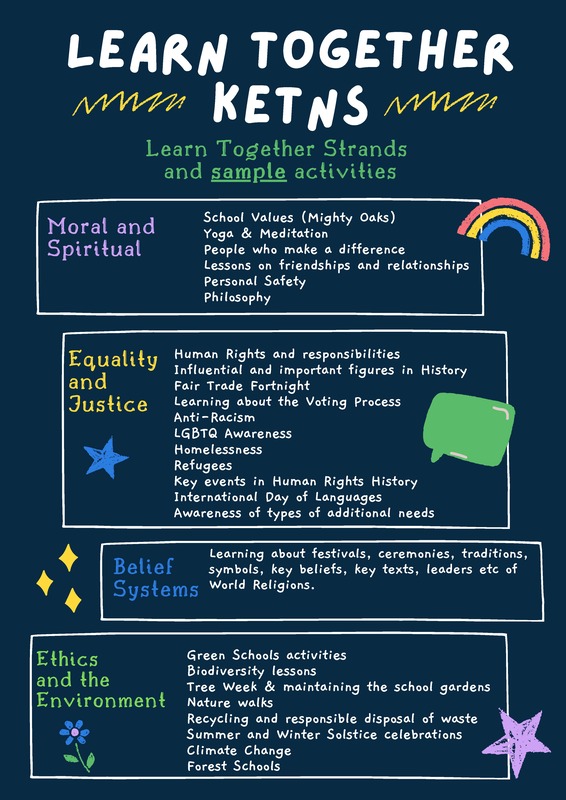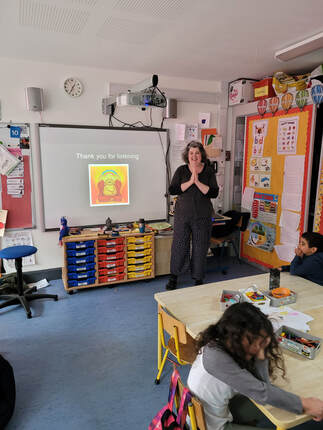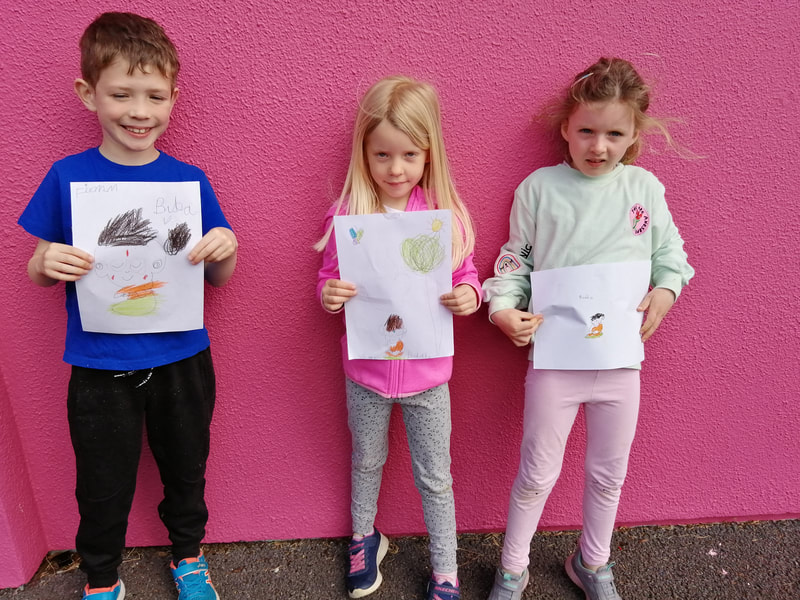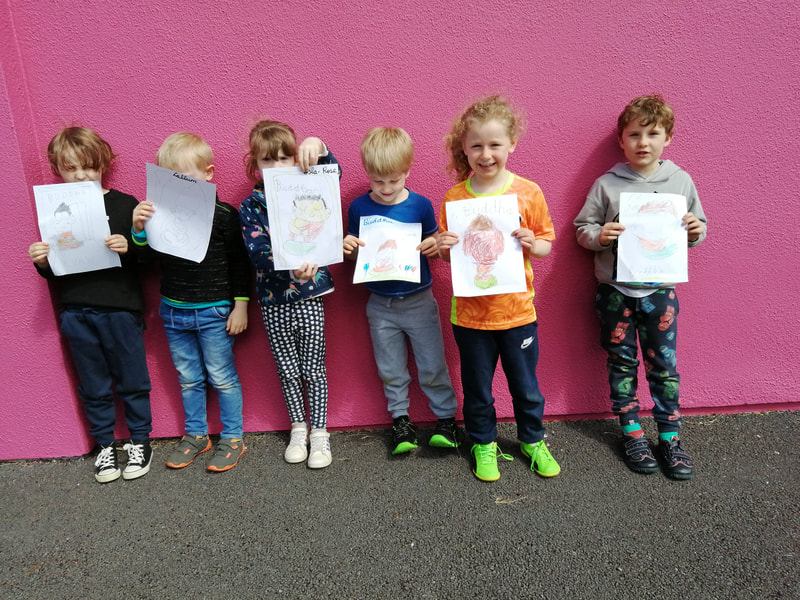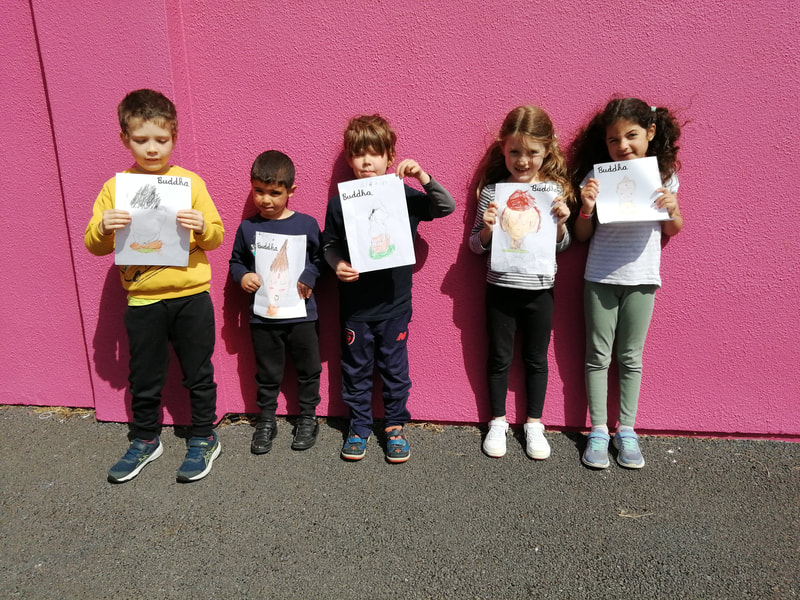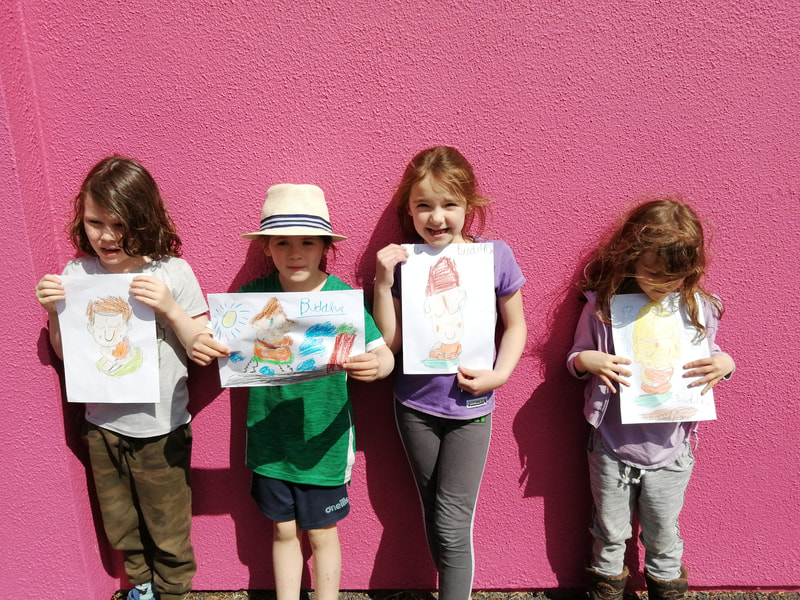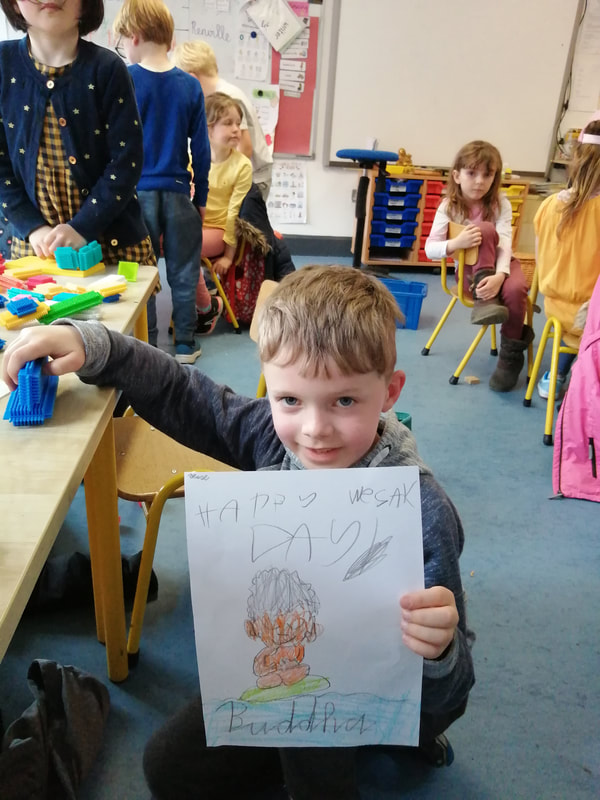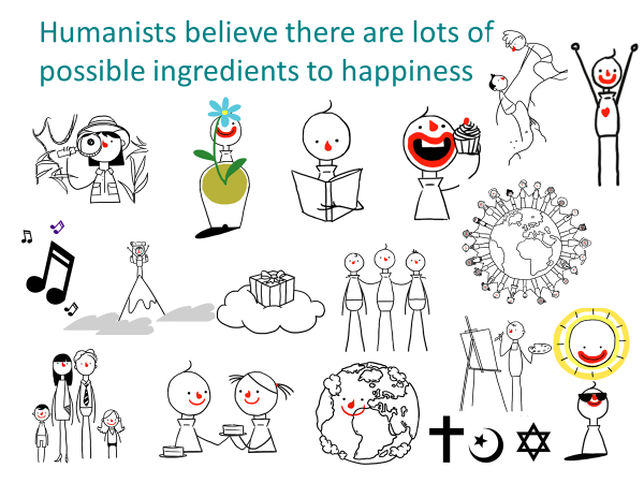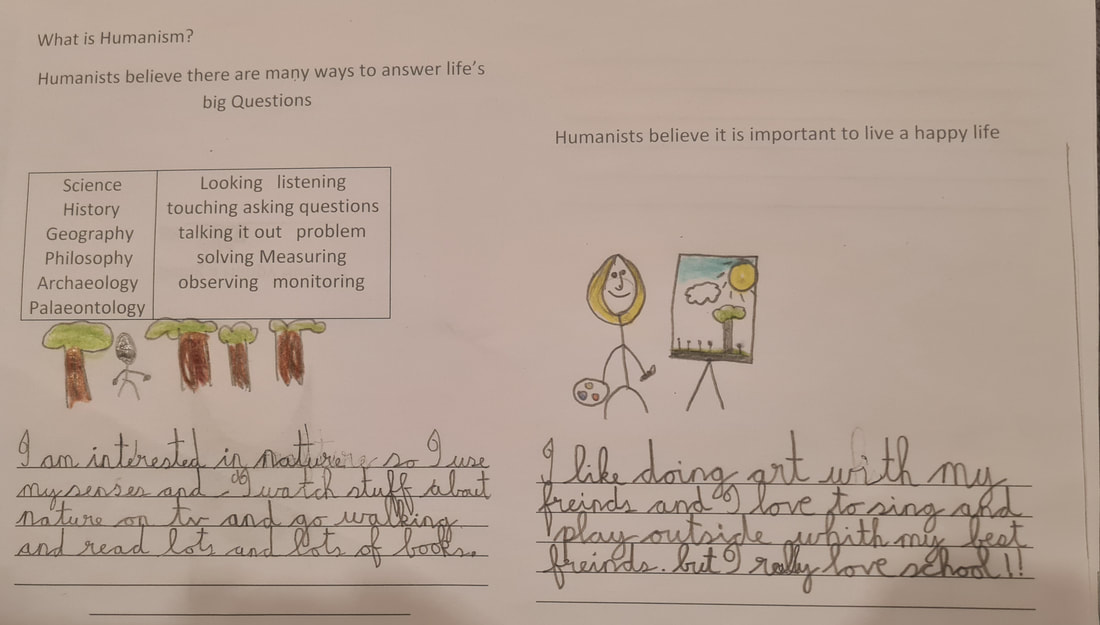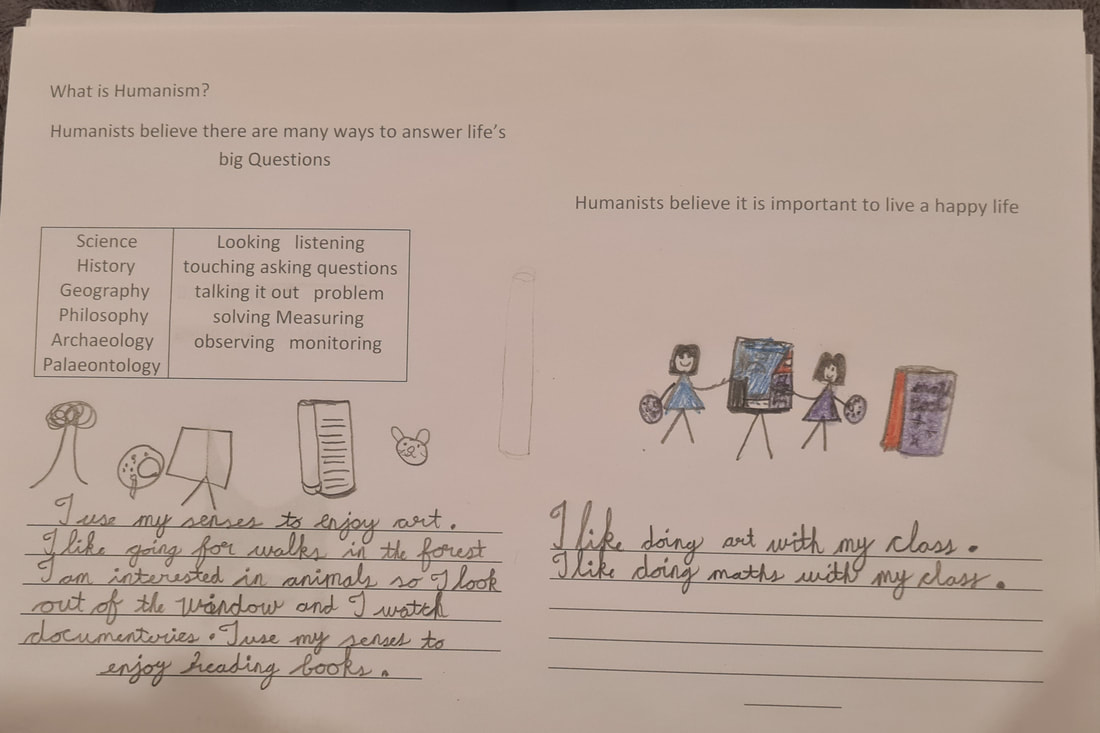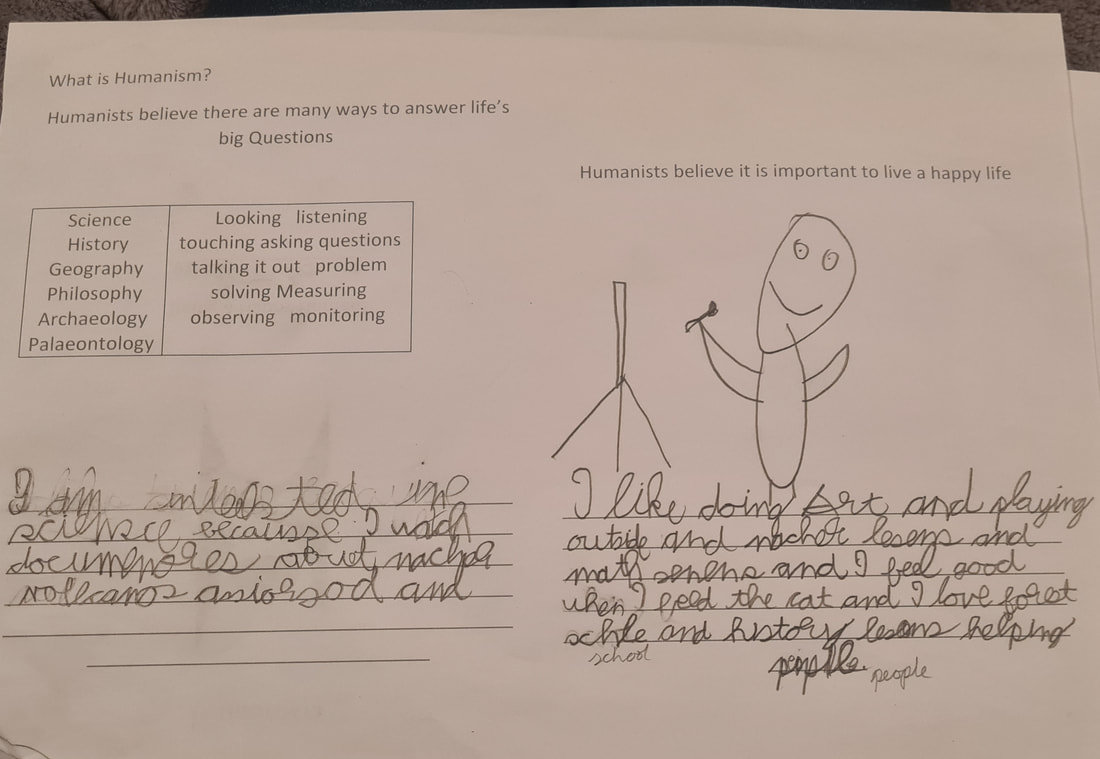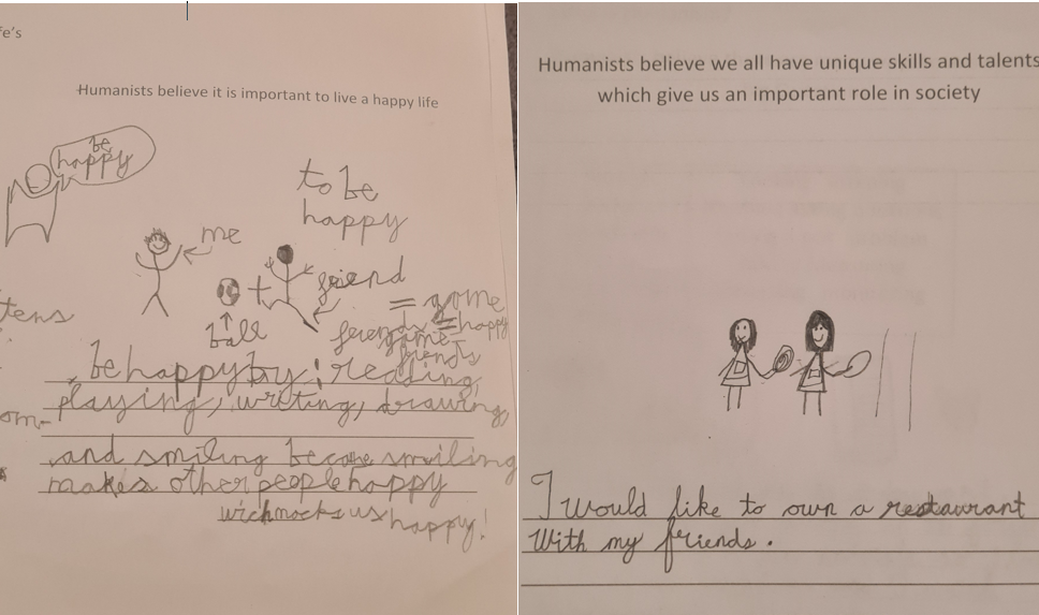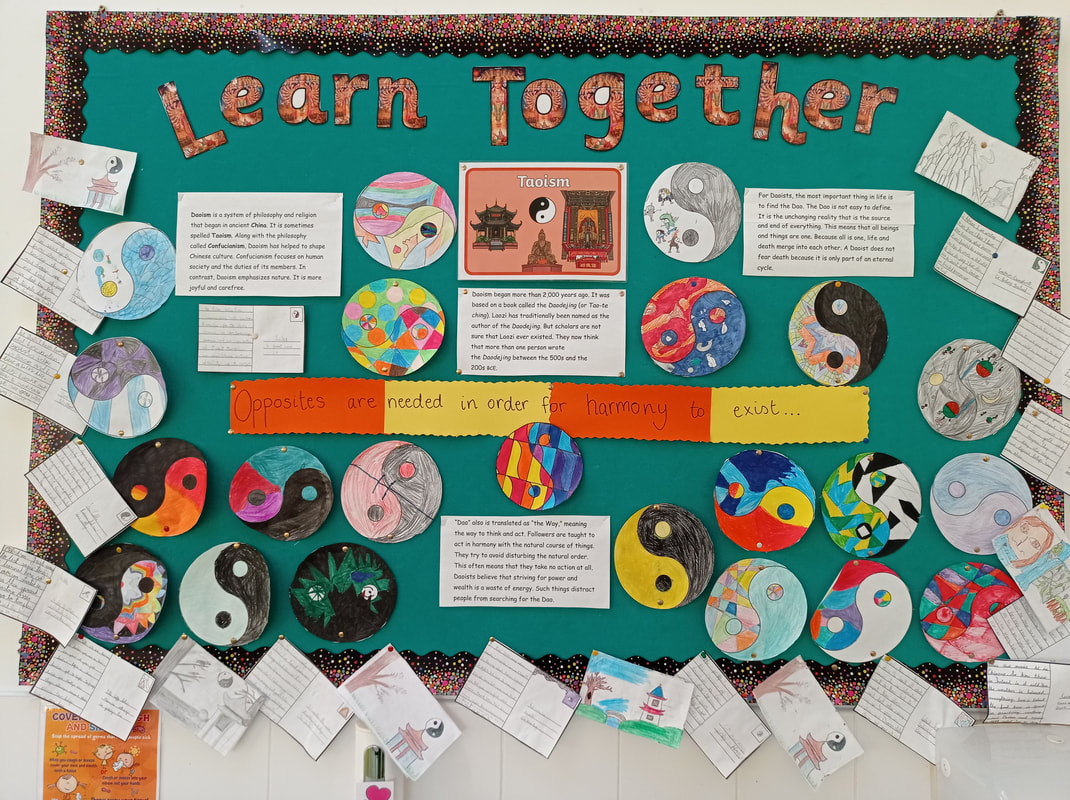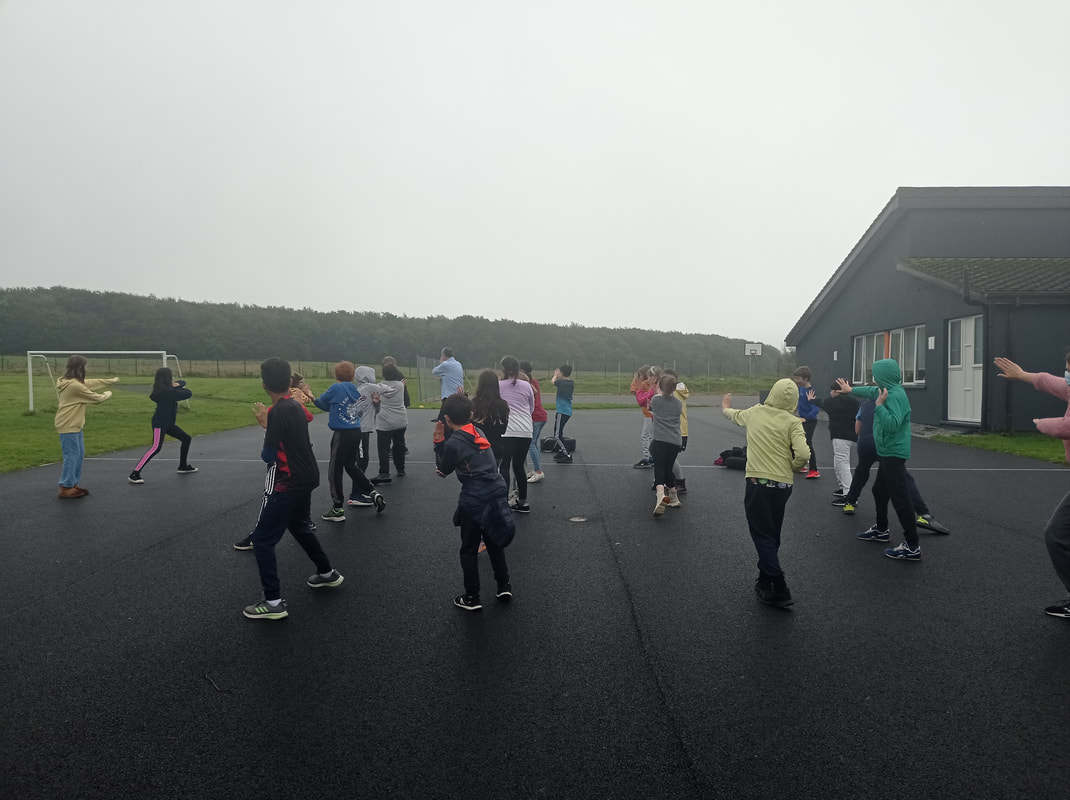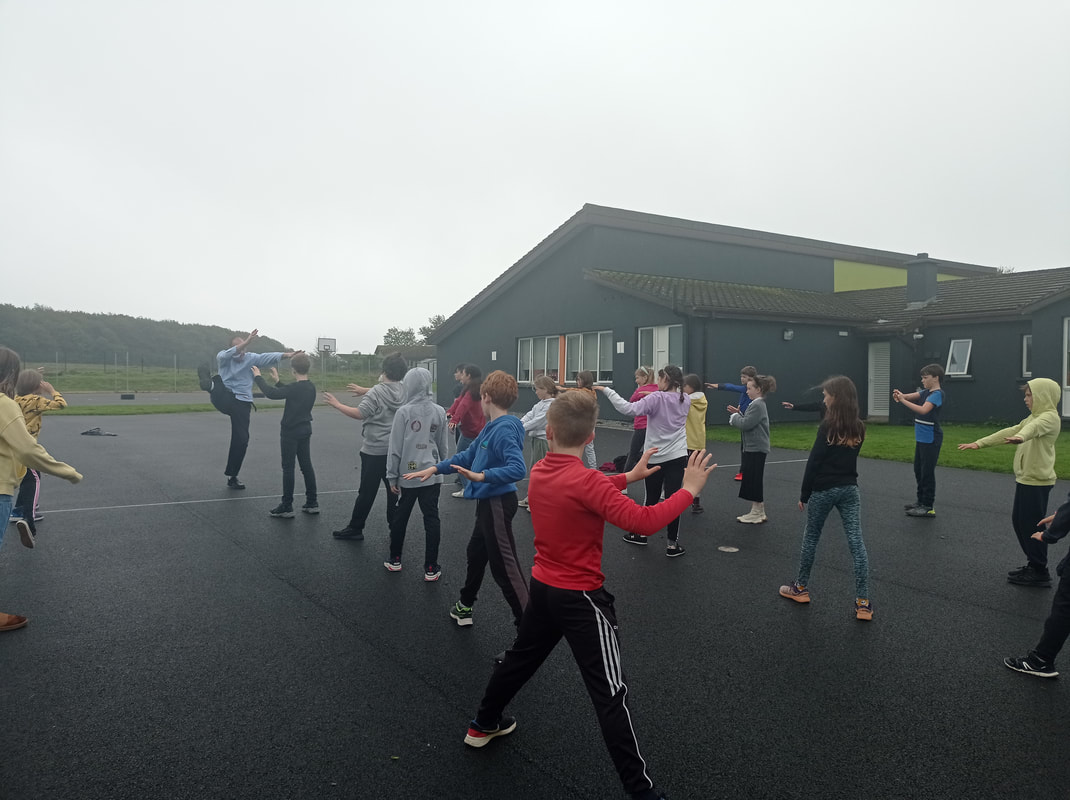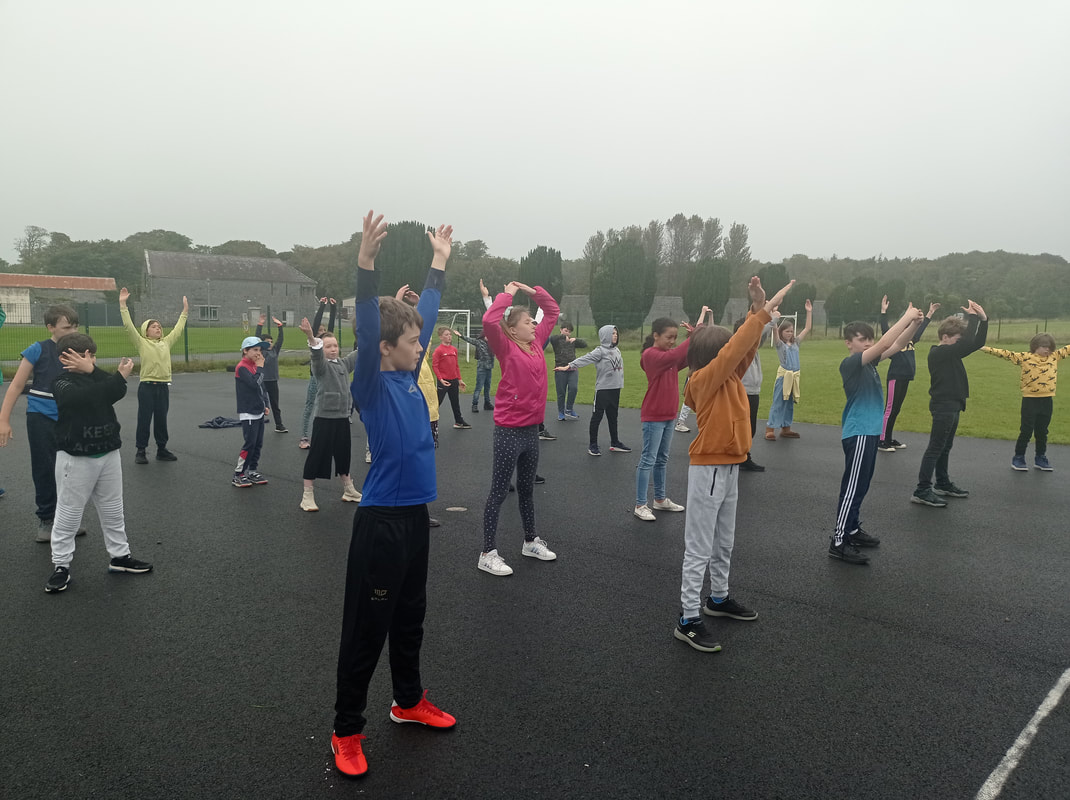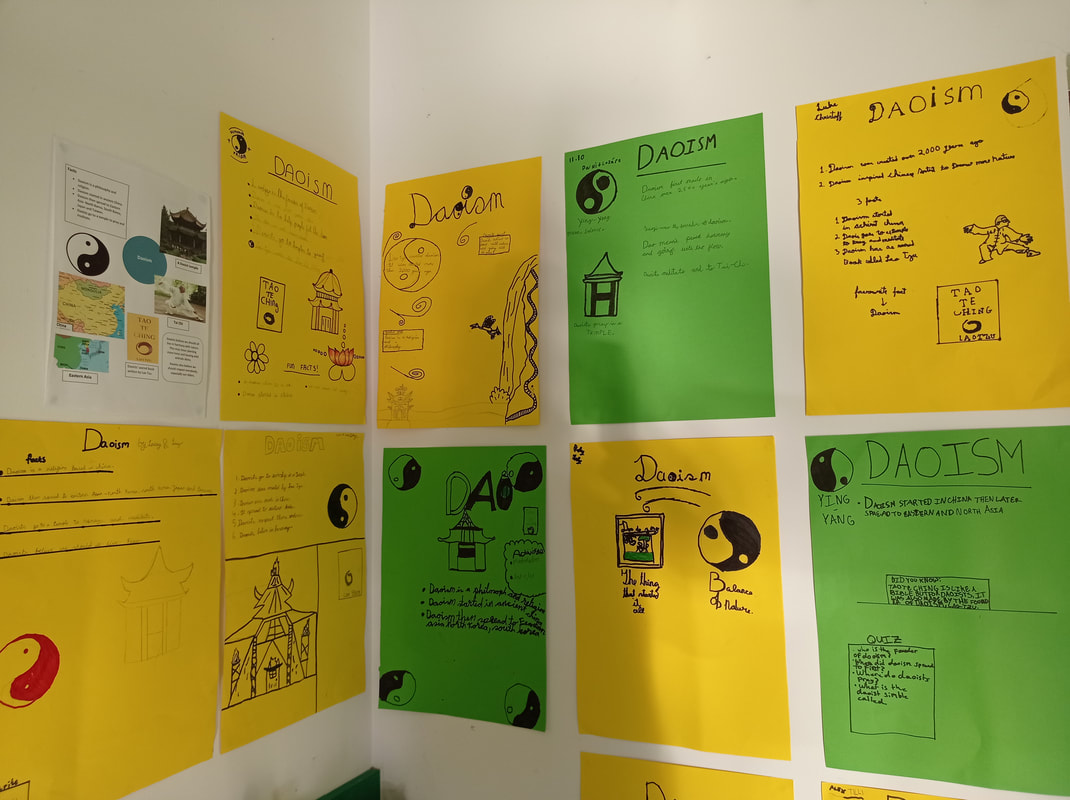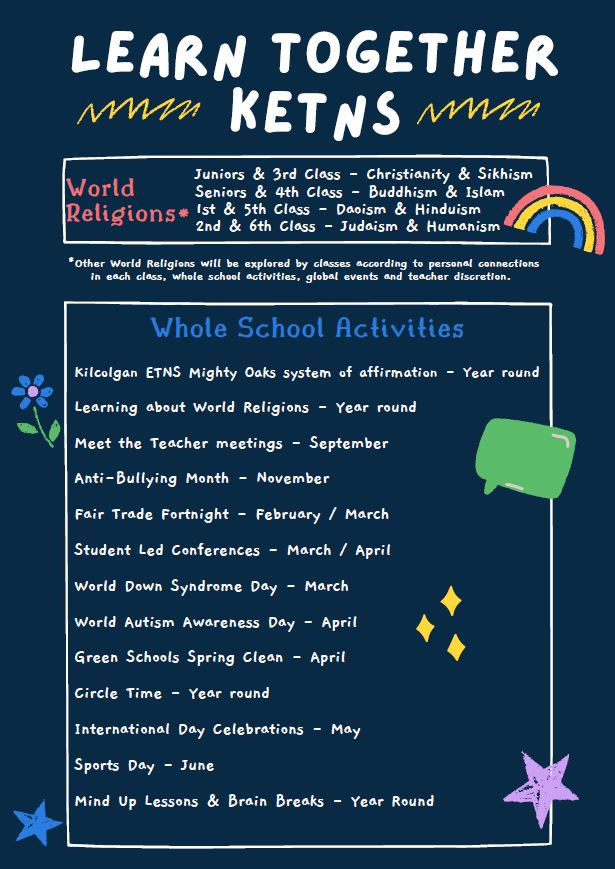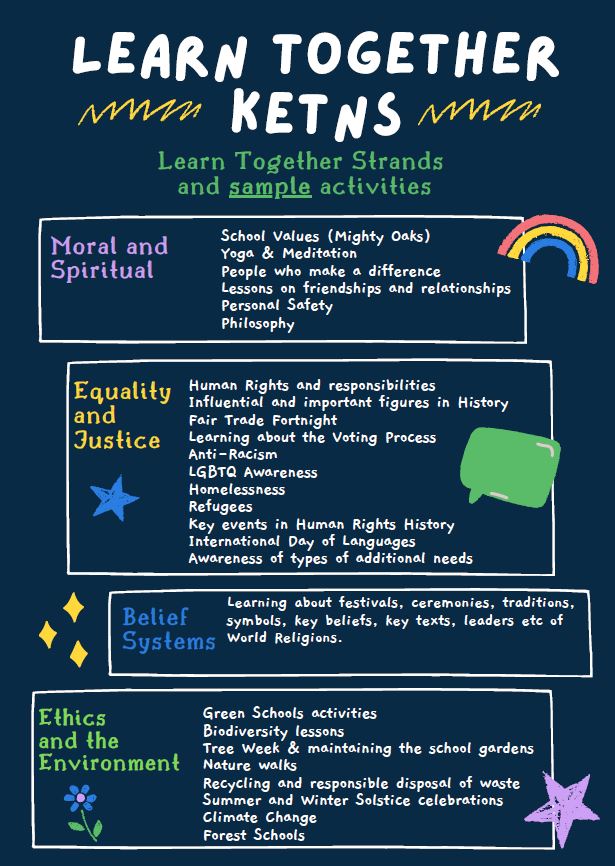Senior Infants - Buddhism
Senior Infants were learning all about Buddhism. They chose to focus on the Wesak festival. Wesak Day is celebrated on the Sunday that is closest to May’s full moon. This holiday is one of the most important festivals in the Buddhist calendar as it commemorates three significant events in Gautama Buddha’s life – namely his birthday, his enlightenment and his passing away. They learned the song 'Happy Vesak'.
Senior Infants were also very lucky to have Sarah come in and speak about Nichiren Buddhism, which she practices. They learned all about Buddha, she demonstrated her morning and evening chanting and showed the children a photo of her Gohonzon, which she looks at while chanting.
2nd Class - Humanism
2nd Class were learning all about the Humanism belief system.
Humanists believe that humans have one life and they believe it is important to live a happy life.
They believe that we can do this by doing the things we love, being kind to others and looking after the planet.
Humanists believe that we can use our senses, science, history and many other ways to find the answers to life’s big questions!
Humanists believe we should use our unique strengths and talents to make the world a better place.
Humanists believe that humans have one life and they believe it is important to live a happy life.
They believe that we can do this by doing the things we love, being kind to others and looking after the planet.
Humanists believe that we can use our senses, science, history and many other ways to find the answers to life’s big questions!
Humanists believe we should use our unique strengths and talents to make the world a better place.
Here are some samples of the work from 2nd Class's study of Humanism:
3rd Class - Judaism
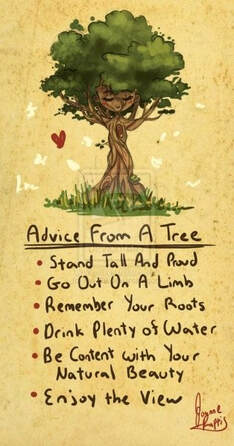
3rd Class were learning all about Judaism. They learned about the Jewish holiday of
Tu B’Shevat. This holiday is also known as the birthday of the trees. It is an opportunity to strengthen people's connection to the environment. In Israel the holiday of
Tu B’Shevat arrives along with the first signs of spring, on the fifteenth (“tu”) day of the month of Shevat. This is perfect timing as the trees are beginning to blossom for the coming year.
Fun fact: According to Jewish law, a tree’s fruit is ready for picking when it turns three. Tu B’Shevat helped ancient farmers mark where the trees were in the growing process.
In 3rd class, while learning about TuB’Shevat and the children wrote their own poems about trees and talked about how important trees are in their lives.
Tu B’Shevat. This holiday is also known as the birthday of the trees. It is an opportunity to strengthen people's connection to the environment. In Israel the holiday of
Tu B’Shevat arrives along with the first signs of spring, on the fifteenth (“tu”) day of the month of Shevat. This is perfect timing as the trees are beginning to blossom for the coming year.
Fun fact: According to Jewish law, a tree’s fruit is ready for picking when it turns three. Tu B’Shevat helped ancient farmers mark where the trees were in the growing process.
In 3rd class, while learning about TuB’Shevat and the children wrote their own poems about trees and talked about how important trees are in their lives.
Junior Infants - Christianity
Junior Infants were learning all about Christianity. They chose to focus on the shepherds and the three kings in the Nativity story and did a Drama role-play based on it.
5th Class - Daoism
Fifth Class were learning all about Daoism. Daoism is a system of philosophy and religion that began in ancient China more than 2,000 years ago. It was based on a book called the Daodejing (or Tao-te ching).
They learned that Daoism emphasizes nature, it is joyful and carefree. For Daoists, the most important thing in life is to find the Dao. The Dao is not easy to define. It is the unchanging reality that is the source and end of everything. It is like an energy or order.
To help them to understand this better, they had a special visitor, Bartley, who spent the afternoon teaching them how to do Tai-Chi.
To help them to understand this better, they had a special visitor, Bartley, who spent the afternoon teaching them how to do Tai-Chi.
Tai Chi draws upon the Daoist principles of yielding, softness, slowness, balance, and rootedness in its movements. Tai Chi moves and unblocks the qi (energy) and moves it around the body.
“Dao” also is translated as “The Way,” meaning the way to think and act. Followers are taught to act in harmony with the natural course of things. They try to avoid disturbing the natural order. This often means that they take no action at all. Fifth Class learned all about the yin-yang symbol and made their own during a mindful drawing lesson.
“Dao” also is translated as “The Way,” meaning the way to think and act. Followers are taught to act in harmony with the natural course of things. They try to avoid disturbing the natural order. This often means that they take no action at all. Fifth Class learned all about the yin-yang symbol and made their own during a mindful drawing lesson.
1st Class - Hinduism
First Class were learning all about Navratri which is a festival celebrated over 9 nights to celebrate 3 Godesses and the triumph of good over evil.
During Durga Puja some Hindus around the world dance with dandiya raas (colourful sticks) to represent Durga's many weapons which she used to defeat evil.
Some Hindus celebrate with colourful clothes and dance and special foods whilst others may choose to celebrate Navratri by reflecting on the year gone by.
They read a story about the Goddess Durga and made their own dandiya raas and danced with them.
During Durga Puja some Hindus around the world dance with dandiya raas (colourful sticks) to represent Durga's many weapons which she used to defeat evil.
Some Hindus celebrate with colourful clothes and dance and special foods whilst others may choose to celebrate Navratri by reflecting on the year gone by.
They read a story about the Goddess Durga and made their own dandiya raas and danced with them.
